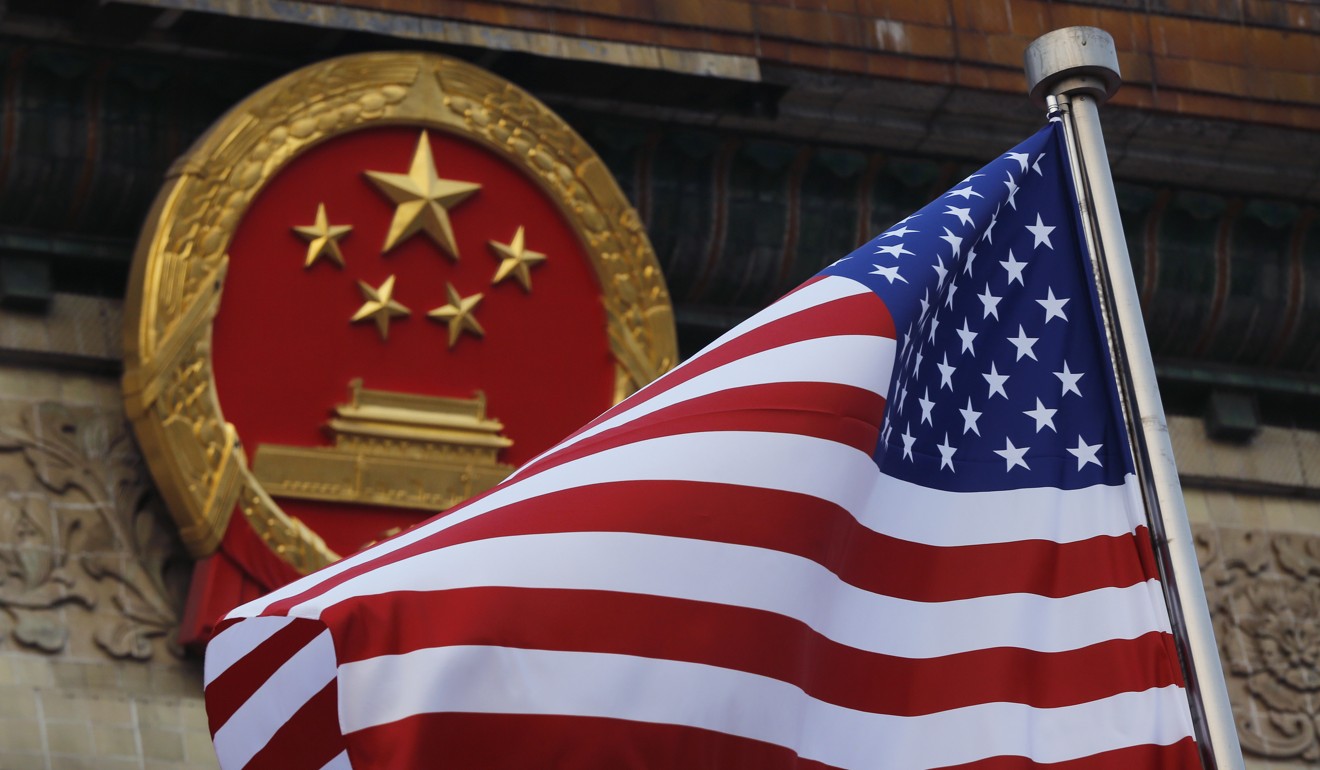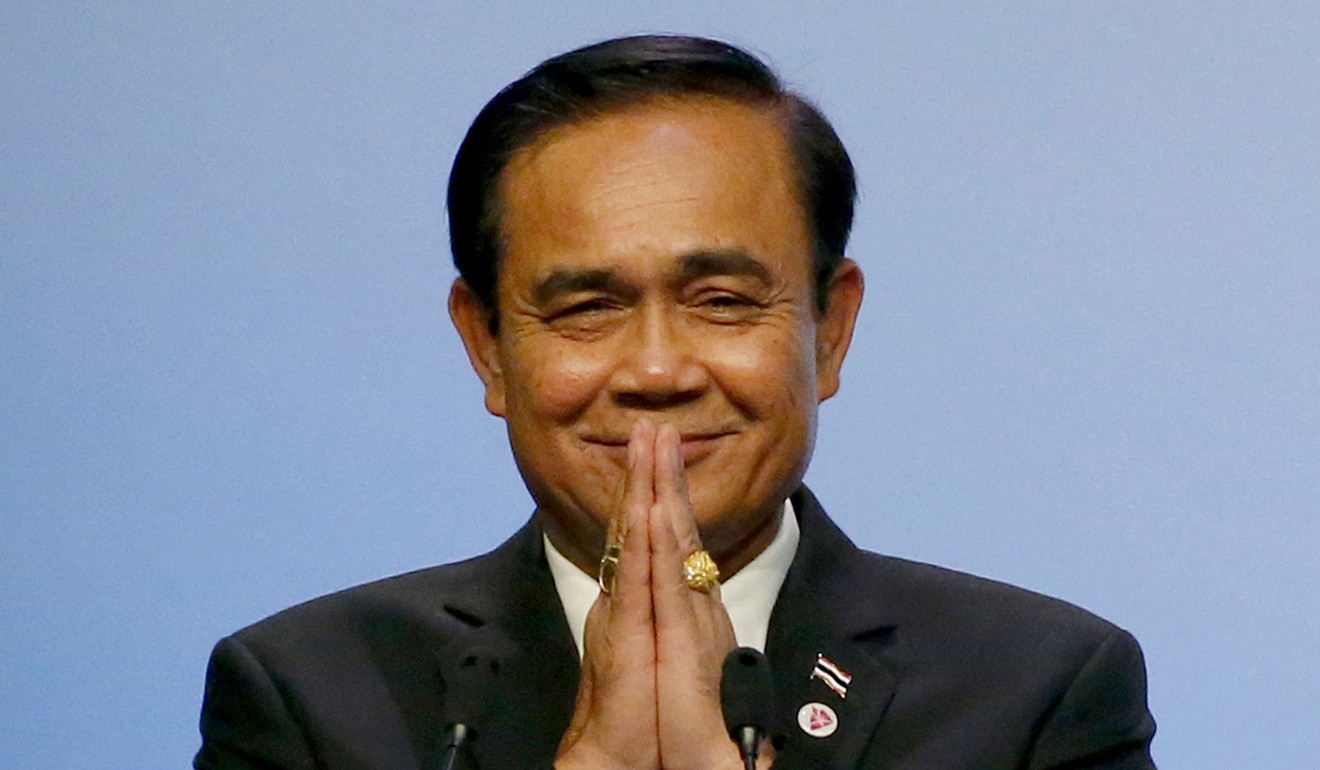
Thailand can cash in on US-China trade war, but there’s no gain without pain
- Southeast Asian nation’s closeness to feuding rivals could stand it in good stead if dispute rumbles on next year
- However it is not immune to the economic damage caused by the tariff war
It’s an uneasy time for Asian nations as the rivalry between China and the United States intensifies and it remains uncertain whether they can resolve their trade war when the 90-day truce expires. In this special series the South China Morning Post explores how the China-US rivalry is affecting four countries in Asia. In part three, Laura Villadiego looks at Thailand.
If the trade war between the United States and China escalates, Thailand is poised to enjoy some short-term benefits as companies look to relocate within Asia, but observers have warned that it may also bring economic risks.
“The Thai authorities have yet to come to grips with the trade war”, said Thitinan Pongsudhirak, director of the Institute of Security and International Studies at Chulalongkorn University in Bangkok. “When they start paying attention to it in earnest, they will find Thailand in good stead because it is very close to China while being a US treaty ally.”
Thailand has historically been one of America’s main allies in Asia, especially after the second world war. This good relationship translated into thriving economic exchanges and today the US is the second largest destination for Thai exports.
At the start of the 21st century, though, Bangkok reoriented its foreign policy towards China, which became the main destination for Thai exports in 2010.
The military junta that took power in a coup d’état in May 2014 strengthened the country’s ties to China, even though this relationship has not always been smooth.
“Initially Thailand went head over heels for China’s superpower support after the coup in 2014, but became more hedged with Japan after the Chinese offered tough loan terms on the rail project”, Thitinan said.
Both Japan and China have been courting Thailand to cooperate in several infrastructure projects, mainly high-speed train lines, that the Thai government has been pushing recently.
Thailand pushes for high-speed rail link with China to be used for freight
After months of negotiations, China and Thailand reached an agreement in August 2017 for the construction of Thailand’s first high-speed rail line; it will link the capital, Bangkok, and the northeastern city of Nakhon Ratchasima, and should eventually reach Nong Khai on the border with Laos.
The line has been seen as a key element of the “Belt and Road Initiative”, Beijing’s plan to connect China with more than 60 countries in Asia, Africa and the Middle East through infrastructure projects.
However, Japan is also negotiating with Thailand over the construction of another high-speed train line – this one would connect Bangkok and Chiang Mai, the largest city in north Thailand and a popular tourist spot.
Beijing and Tokyo have agreed to work together on infrastructure projects in third countries as part of their efforts to counter US President Donald Trump’s aggressive trade policies, with the two sides reported to have reached a deal to develop an energy-efficient smart city in Thailand.
While Japanese investments in Thailand include several large car factories, Chinese investments are mainly in small or medium-sized companies “mostly because of [Thailand’s] investment restriction and environment-related regulations”, said Xu Liping, a Southeast Asian studies expert at the Chinese Academy of Social Sciences (CASS).
Thitinan said that Donald Trump’s election as president in 2016 helped improve Thai-US relations, which had eroded after the coup, because Trump “focused more on interests over values”.
The escalation of the US-China trade war may have been halted – for 90 days at least following Trump and Xi Jinping’s meeting in Argentina at the start of the month – but the tariffs already imposed on Chinese goods remain in place and may bring new opportunities for countries like Thailand.
“The trade war will benefit Southeast Asia because some industries will relocate there,” said Enze Han, an associate professor of politics and public administration at the University of Hong Kong.

In this competition to attract industries, Thailand may benefit from its geographic location – in the middle of Southeast Asia and with easy access to the sea – and also from positive historical ties with China that neighbouring countries, like Malaysia or Vietnam, lack.
“Thai-Sino communities are much more powerful [in the country] and there is no particular sensitivity in dealing with China,” Han said, referring to the disputes several Southeast Asian countries have with China in the South China Sea and the ethnic flare-ups that have confronted Chinese communities in Vietnam and Malaysia.
How Chinese-Thais came to dominate Thailand’s rice export business
However, Thailand could be negatively affected as well, as many goods that Thailand exports to the US and China are raw materials used in those nations’ own supply chains.
“The tricky part is that if China, Japan or the US are not doing well, everybody may suffer,” Han said. Thailand’s commerce ministry said exports had been hit by the trade war and contracted by 5.2 per cent year on year in September.
Even though exports rebounded in October from the previous month’s decline, some exports, like rubber, have been seriously damaged by the new tariffs.
According to Siam Commercial Bank, the trade war could also hit Thai companies in the domestic market.
The dispute could “cause products of both trade giants to be dumped into Thailand, resulting in stiffer competition with Thai domestic products”, it said.
However, the bank also saw opportunities in the “increase in the demand for Thai products that are substitutable in these two markets” – notably cassava, soybeans and plastic resins.
The Thai government remains optimistic and has set an export growth target of 8 per cent for 2019. The World Bank has also adjusted its projections for Thailand’s economic growth this year, to 4.5 per cent, from 4.1 per cent, based on domestic demand recovery and a boost in public investment activities.
Yet Thailand is ill-prepared to replace China as a high-end manufacturing hub, said Pavida Pananond, an associate professor of international business at Thammasat University in Bangkok. That is because the nation needs to improve its competition policies and intellectual property rights protection; ameliorate the costs of doing business in the country; and enrich the level of skills of Thai workers.
“To become a true centre for [the global] supply chain to replace China is not going to be easy, because China has a lot of advantages,” Pavida said.

In 2016, the government introduced its “Thailand 4.0” policy that intends to modernise the economy through innovation and to turn Thailand into an economic hub for high-technology industries, like robotics or aeronautics.
“To attract more sophisticated industries, [ …] Thailand needs to prepare itself for a better investment infrastructure for more advanced activities,” Pavida said.
The Thai government is also pushing an expansion of the Eastern Economic Corridor, one of the main industrial areas in the country, and has announced a similar corridor for its southern region.
How the looming US trade war and China’s rising labour costs are a boon to Vietnam
The political instability that Thailand has seen over the past decade could also hamper the country and boost Vietnam, which shares a border with China and can offer lower labour costs and more political stability.
However, the Thai government last week lifted a ban on political activities in the run-up to a long-awaited general election in February.
Speaking ahead of the announcement, Pavida said the elections would probably be viewed positively by investors.
“The economy is still growing despite our political difficulties, and the elections that are going to take place next year show that at least something is moving forward,” he said.
But the election campaign may also increase the scrutiny on Chinese-funded infrastructure projects, which faced increased criticism in other countries over the lack of transparency.
Will military's tighter grip give Thai economy a boost?
Such fears have become sharpened recently when three high-profile projects in Malaysia, including a high-speed railway, were cancelled after the new government led by Mahathir Mohamad defeated the pro-Beijing prime minister Najib Razak.
Xu, from the CASS, said that Beijing-backed infrastructure projects faced an uncertain future if current Prime Minister Prayuth Chan-ocha, a former general, is defeated in the February 24 election.
But he said that unlike in Malaysia there was a consensus among Thai politicians about the importance of cooperating with China, so the impact of a change of government would be limited.


